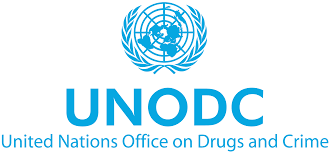 Chief of the UN Office on Drugs and Crime (UNODC) tells audience in Vienna that alternative development works best when tied to the sustainable development and good governance agendas
Chief of the UN Office on Drugs and Crime (UNODC) tells audience in Vienna that alternative development works best when tied to the sustainable development and good governance agendas
VIENNA, 14 March (United Nations Information Service) – Alternative development can help farmers escape the poverty trap of illicit crop cultivation, but other factors are also involved, the head of UNODC Yury Fedotov said today.
“The transfer of skills and access to land, credit and infrastructure, as well as marketing support and access to markets, while promoting environmental sustainability and community ownership are all necessary,” he said.
Mr. Fedotov was speaking at an event about alternative development held on the side lines of the 60th Session of the Commission on Narcotic Drugs (CND), organized by Thailand, Germany, Colombia and Peru. Welcoming remarks were delivered by UNODC’s Goodwill Ambassador on the Rule of Law for South East Asia, HRH Princess Bajrakitiyabha Mahidol of Thailand.
Both the 2030 Agenda for Sustainable Development and the outcome document of last April’s UN General Assembly Special Session on the world drug problem pointed to the need to overcome the challenge of illicit drugs to achieve the sustainable development goals, said the UNODC Chief.
UNODC has over 40 years’ experience implementing alternative development programmes and assisting countries in this work. This led, said Mr. Fedotov, to UNODC assisting Thailand and Peru to hold two international conferences on alterative development (ICAD I and II) and develop the UN Guiding Principles on the subject.
Mr. Fedotov underlined the need to strengthen the research and regular monitoring of key indicators to better understand and evaluate the contribution of alternative development to the targets of the Sustainable Development Goals.
UNODC’s World Drug report 2015 provided a detailed chapter on alternative development setting out the interplay between development and the challenge of illicit drugs.
Alternative development programmes are aimed at helping to eliminate the cultivation of coca, opium poppy and cannabis by promoting licit farming alternatives and helping to sustain the lives of farmers and their families.
